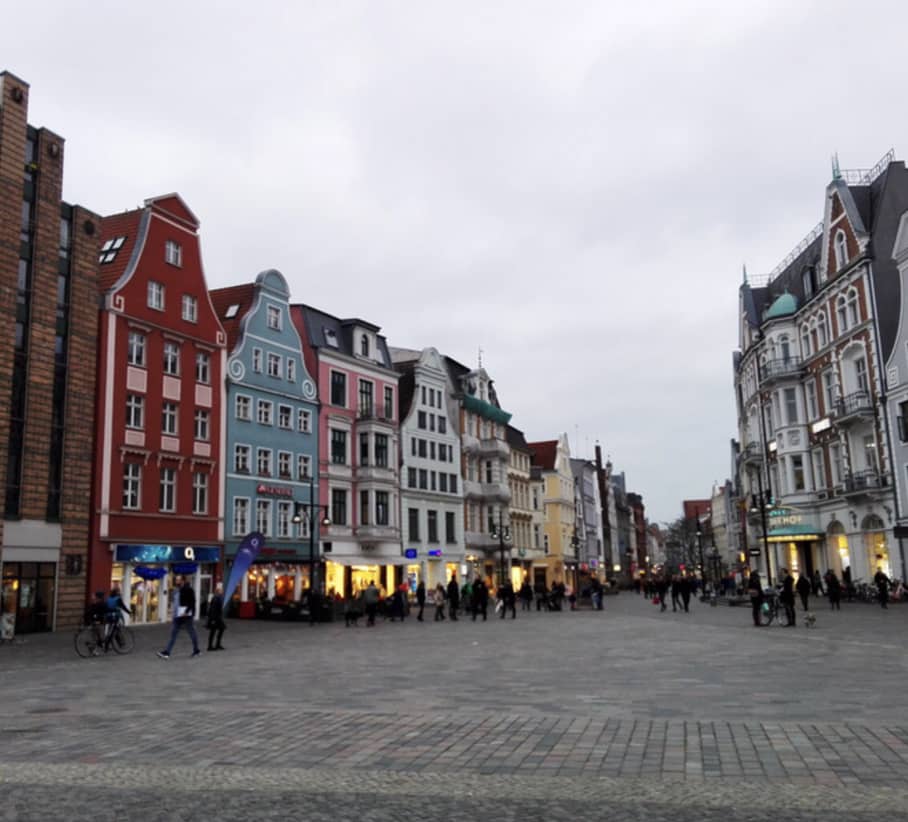Immigrant Influx Puts Strain on Western Housing Costs
The explosive increase in immigration in Western countries after the Covid-19 pandemic has had significant impacts on housing prices and the fight against inflation.

Immigration levels have reached record highs across Europe, Asia, and North America as individuals seek to capitalize on tight labor markets. Unfortunately, many of these migrants are settling in cities already facing housing shortages. Consequently, the demand for housing has surged, leading to inflated rents and preventing home prices from falling despite rising mortgage costs, especially in regions such as Europe, Canada, and Australia.
The population growth resulting from immigration poses a hindrance to any potential decline in house prices even with high-interest rates. For instance, Canada, which welcomed a record 437,000 migrants last year, experienced a resurgence in property prices in February after ten consecutive months of decline. Similarly, the UK has witnessed rent inflation reaching its highest level since 2016, with rent prices rising consistently for the past 21 months. In the US, rent growth has slowed, but house prices have rebounded after a year of decline. Data from the National Association of Realtors reveals a steady increase in the median home sale price since hitting its low of $361,200 in January.
While factors like limited investment in new housing projects and the reluctance of homeowners to sell contribute to the rise in housing costs, economists argue that the influx of immigrants, both legal and illegal, plays a significant role. In the US alone, the population increased by 1.26 million people last year, with immigrants accounting for 1 million of that growth.
A recent report from Goldman Sachs identified the rapid increase in immigration as the primary factor anchoring house prices in advanced economies above initial expectations following declines in interest rates. However, this persistent surge in housing costs adds to the overall economic pressure as other expenses continue to rise. Given that housing costs are a significant component of central banks' inflation measures, it is argued that further rate hikes are necessary to address the issue.
Australia, in particular, faces immense housing supply strain due to its high influx of immigrants. Economists estimate that approximately 85% of migrants transition to becoming renters upon arrival, intensifying their impact on the housing market. With around 400,000 more people migrating to Australia than leaving in the 12 months leading up to June, the country's average rents across major cities surged by 11.5% within that period, surpassing pre-pandemic levels by more than 25%. This surge in demand, compounded by an increase in international students after completing their studies in the Northern Hemisphere, has led to renewed growth in Australian house prices.
Many economists predict a 20% decline in house prices once the Reserve Bank of Australia (RBA) initiates an aggressive rate hike program in May 2022. However, recent data showcases a different trend. Sydney, a popular destination for many immigrants, experienced a 6.7% increase in house prices from recent lows, amounting to a $45,000 surge in median home value. Property firm Domain Group predicts a 6-9% increase in Sydney's median house price in the 12 months leading to June 2024, driven by a growing population and fewer homes available for sale. The company anticipates a wave of immigration, demanding an additional 300,000 homes across Australia.
The strain on housing supply caused by the influx of immigrants may potentially lead the RBA to continue raising interest rates, building upon the already 4-percentage-point increase since May 2022, bringing rates to the highest level in over a decade.
Germany, too, is grappling with similar challenges surrounding housing costs, migration flows, and a slowdown in construction. The increase in migration, primarily driven by over 1.1 million refugees from Ukraine, propelled Germany's net immigration to a record high of 1.5 million in 2022. Simultaneously, the country's home construction remains below the government's annual target of 400,000 new apartments to address the housing shortage adequately. Rent prices in Germany have accelerated notably, as evident in data from real estate platform ImmoScout24, with Berlin and Stuttgart experiencing record-breaking quarterly rent growth in the first quarter of 2023.
In the UK, new housing supply peaked in 2020 but has since fallen short of the government's target to build 300,000 new homes annually, largely due to pandemic-related disruptions. These inadequate housing construction activities only further exacerbate the housing shortage and contribute to rising prices.
To address the growing issue, the Australian government has announced plans to introduce tax breaks to boost rental housing supply and increase rent support payments for low-income groups. However, it is essential to acknowledge that constructing new housing projects often takes a considerable amount of time, largely due to strict zoning regulations.
The surge in immigration across Western countries has undeniably impacted housing markets, driving up rents and supporting high housing prices. This puts greater strain on the fight against inflation as central banks endeavor to control the economy effectively. The unique challenges posed by immigration, along with other factors, demonstrate the significance of housing costs in the overall inflation measures. As such, it becomes increasingly essential to pursue comprehensive strategies that incorporate increased housing supply, effective zoning regulations, and targeted economic measures to address the housing crisis brought about by the influx of immigrants.
Immigrant Influx Puts Strain on Western Housing Costs
Greece Real Estate Market: Rise of Serviced Apartments
Explore the growing demand for serviced apartments in central Athens, where integrated hospitality services attract savvy investors in the Greece real estate market.
Explore the growing demand for serviced apartments in central Athens, where integrated hospitality services attract savvy investors in the Greece real estate market.
Read moreHome Prices Hit by Climate Change, J.P. Morgan Warns
J.P. Morgan analysts reveal a negative link between climate risk and home price appreciation. Explore the emerging trends and their impact.
J.P. Morgan analysts reveal a negative link between climate risk and home price appreciation. Explore the emerging trends and their impact.
Read moreRenting in Spain: Prices Finally Decline
The cost of renting in Spain trends downwards, averaging €13/m². Discover insights on this shift after years of steep increases.
The cost of renting in Spain trends downwards, averaging €13/m². Discover insights on this shift after years of steep increases.
Read moreRise of Cash Purchases Outside London: A New Trend
Explore the growing trend of cash purchases outside London and its implications for the property market and economic landscape.
Explore the growing trend of cash purchases outside London and its implications for the property market and economic landscape.
Read moreCanada Real Estate Market: Rents Drop for First Time in over 3 years
For the first time in over three years, average asking rents in Canada fell 1.2% in October, reaching $2,152, according to Rentals.ca.
For the first time in over three years, average asking rents in Canada fell 1.2% in October, reaching $2,152, according to Rentals.ca.
Read moreFewer Than 2% of Dutch Homes Sold to International Buyers
Analyze the decline in international purchases of Dutch houses, revealing key factors influencing this trend and its effects on the housing market.
Analyze the decline in international purchases of Dutch houses, revealing key factors influencing this trend and its effects on the housing market.
Read moreDonald Trump’s Victory May Boost London Property Demand
Knight Frank analyzes how Donald Trump’s election win could increase demand for prime London properties. Discover the potential market shifts.
Knight Frank analyzes how Donald Trump’s election win could increase demand for prime London properties. Discover the potential market shifts.
Read moreGerman Investors Fuel Growth in Greek Real Estate Market
Discover how German-speaking house buyers are revitalizing Greece's realty market, driving demand and investment in stunning properties.
Discover how German-speaking house buyers are revitalizing Greece\'s realty market, driving demand and investment in stunning properties.
Read moreLisbon: 11th City for Rising Luxury House Prices
Lisbon's luxury housing prices increased by 5.6%, outpacing Madrid, Seoul, and Zurich, marking it as a key player in the global real estate market.
Lisbon\'s luxury housing prices increased by 5.6%, outpacing Madrid, Seoul, and Zurich, marking it as a key player in the global real estate market.
Read more













